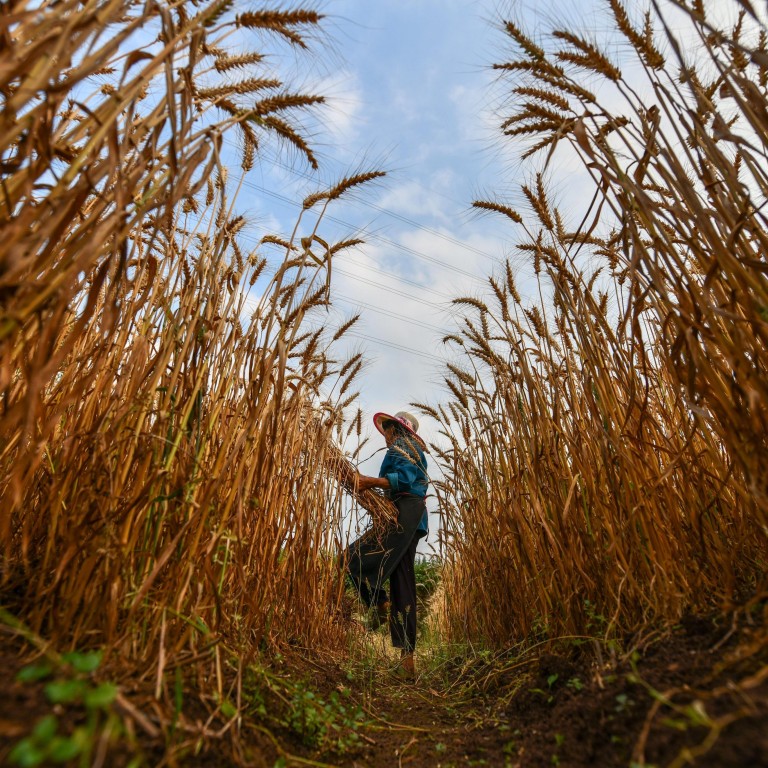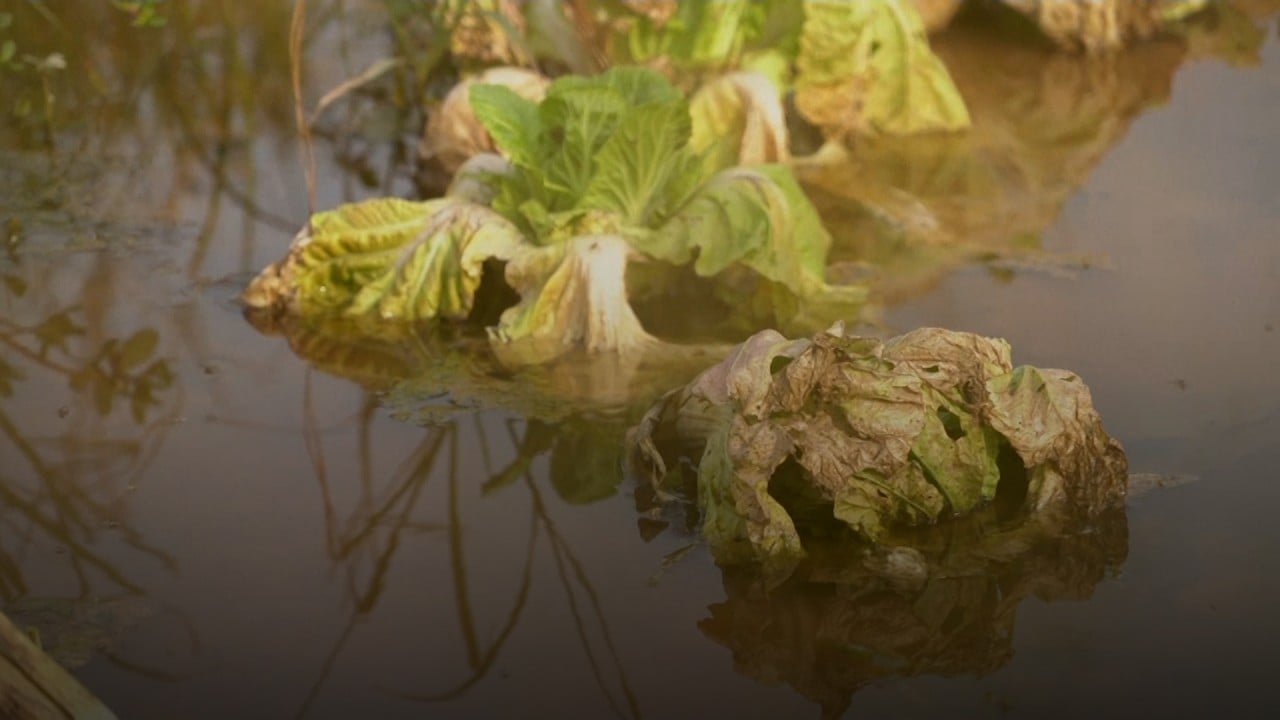
China’s grain output hits new high in 2021 as food security drive begins to pay off
- Grain production hit a record 682.9 million tonnes this year, up from 650 million tonnes last year
- The annual data comes amid growing concern about food security in the world’s No 2 economy
China’s grain output rose two per cent in 2021 from a year earlier, hitting a record, despite natural disasters wreaking havoc on plantations, the National Bureau of Statistics (NBS) said on Monday.
Grain production totalled 682.9 million tonnes, up from 650 million tonnes last year, the bureau said.
China’s total crop growing area was 1.764 billion mu (117.6 million hectares) this year, an increase of 0.7 per cent compared to 2020, marking the second year of growth in a row.
The acreage of corn and wheat grew amid rising prices and profit, while the size of soy bean and rice fields shrunk as prices fell, the NBS said.
Corn acreage rose 5 per cent from last year and output rose 4.6 per cent.
The growth in grain output reflects investment in improving crop varieties and making it easier for farmers to harvest, process and store yields efficiently, said Even Pay, an agricultural analyst with Trivium China, a Beijing-based consulting firm.
It means if winter crops are a little less productive this year due to severe weather, there’s a cushion to fall back on
“It’s also reassuring in terms of the risks posed by a La Nina winter. It means if winter crops are a little less productive this year due to severe weather, there’s a cushion to fall back on,” she said.
Beijing has been stressing the importance of food security in recent months, as shifting geopolitical tensions have affected food imports and exports, and rising global food prices threaten to drive up domestic inflation.
Despite stable domestic production, China is still heavily dependent on global markets for a few key crops such as corn, cotton, soybeans and sugar, which are often affected by geopolitics.
China signals overhaul of GM crop rules in food security drive
Pay said food prices are likely to peak in time for the Lunar New Year holiday, which starts on January 31, as people will do extra shopping to prepare for the seven-day break, which will drive up demand.
“The next couple of months are really critical for policymakers as they hope to keep food prices moderate. And typically we would expect them to continue to float up somewhat until the end of January.”


